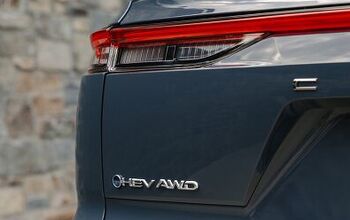International Crisis Reaches Brazil. Government Action Knocks Prices Down.

Brazil has historically been a difficult place to do business. The government keeps foreigners out as best as it can, and that extends to vehicle importers as well. In the car business, you are welcome to market your wares as long as you build locally. Imported cars have always been expensive, and the costs are set to rise, as the government has taken new measures that affect both local makers and importers. Read this very closely before you ask for import restrictions into your country.
On Monday, May 21, Finance Minister Guido Mantega announced a series of measures. A 14 percent drop in car sales, a record high 5.7 percent delinquency rate on car payments and an average of more than 40 days to move the metal were some of the justifications for the intervention. I wouldn’t call you a cynic if you believed that this action was taken mainly because the automotive industry is famous for its lobbying prowess and politics. Local elections are right around the corner, and the government finds itself in the middle of a debilitating scandal involving public contracts. A McCarthy-style Investigative Commission has been set up in Congress, and the circus act is on full swing in Brasilia. Most analysts agree that this commission will most likely get results about as valuable as McCarthy’s.
With some close races to be had, especially in the all-important city of São Paulo, which to the glee of our politicians holds the third largest purse in the country, it wouldn’t be too far-fetched to imagine the automotive industry threatening mass firings and a government cowed into spreading some cheer, divert attention from its troubles and avoid unemployment and loss of votes.
Measures included in the government’s pacote de bondades, as the Brazilian media likes to call such things, involve cutting taxes. The Minister mentioned that the government will pass up 2.1 billion reais in uncollected taxes. Cars will now incur less IPI (Tax on Industrialized Products,) measured according to displacement, vehicle class, its fuel requirements and country of origin. As a peace offering to OEMs that import, rather than build locally, imports will also benefit from lower taxes – as long as they have a displacement of 2000 cc or less (see tables below). Supposedly that’s for ecological and economic reasons.
A cut in the IOF (Tax on Financial Operations) was approved to stimulate consumers to take more credit and pay longer plans. This way, more costumers will be in a condition to get themselves into further trouble, I mean, take on more debt. Previously, consumers paid an IOF of 2.5 percent a year. This has been cut to 1.5 percent. Imagine that instead of taking the interest of your alleged home equity loan off your taxes, you would have to pay additional interest to Uncle Sam. Inconceivable? Welcome to Brazil.
Banks will also have to make fewer compulsory deposits. This will free up about 18 billion reais for the banks to apply in long-term financial operations. According to the Central Bank, this figure represents 10 percent of all the credit available in the car segment.
Cars produced locally or in Mercosur or MexicoCategory/DisplacementFuelNew IPI TaxPrevious IPI TaxUp to 1.0LAny0%7%Between 1.1 and 2.0LEthanol and flex fuel5.50%11%Between 1.1 and 2.0LGasoline6.50%13%Above 2.0LAny25%25%Commercial VehiclesAny1%4%Cars Imported from countries other than Mexico and MercosurCategory/DisplacementFuelNew IPI TaxPrevious IPI TaxUp to 1.0LAny30%37%Between 1.1 and 2.0LEthanol and flex fuel35.50%41%Between 1.1 and 2.0LGasoline36.50%43%Above 2.0LAny55%55%Commercial VehiclesAny31%34%In Minister Mantega’s explanation, he warned that the IPI reduction would be valid only until August 31. At that point, he seemed like any small time dealer shouting, “Buy now!” on TV. The IOF tax and reduction on compulsory deposits are good for an undetermined amount of time. He stressed that makers had agreed to sacrifice for the good of the country and agreed to reduce list prices anywhere from 1.5 to 2.5 percent depending on model. Buyers of imported cars above 2 liters are out of luck. They keep paying a dizzying 55 percent tax on their cars.
As analysts have pointed out, delinquency on car loan payments has almost doubled from a year ago. That means many consumers are already strapped for cash and heavily in debt. The Minister stressed that the government expected its measures to trigger a reduction of around 10 percent in prices for cars in the 1.0L category. For the higher displacement cars expectations hovered around a 6 to 8 percent drop. Also, the lowered IOF and easier credit would naturally lower interest rates, extend the number of installments and reduce the necessary outlay demanded by each installment.

More by Marcelo de Vasconcellos
Latest Car Reviews
Read moreLatest Product Reviews
Read moreRecent Comments
- Jrhurren Worked in Detroit 18 years, live 20 minutes away. Ren Cen is a gem, but a very terrible design inside. I’m surprised GM stuck it out as long as they did there.
- Carson D I thought that this was going to be a comparison of BFGoodrich's different truck tires.
- Tassos Jong-iL North Korea is saving pokemon cards and amibos to buy GM in 10 years, we hope.
- Formula m Same as Ford, withholding billions in development because they want to rearrange the furniture.
- EV-Guy I would care more about the Detroit downtown core. Who else would possibly be able to occupy this space? GM bought this complex - correct? If they can't fill it, how do they find tenants that can? Is the plan to just tear it down and sell to developers?


































Comments
Join the conversation
i think this sort of article is a great thing because it highlights just what economic conditions exist around the world i know most places are anti-car... even the English speaking west such as the North Americas have some odd anti-car legislations and I hear some places in the EU have a 5,000 euro yearly tax on cars over 5.0 liters... it would be nice to see just how bad it is around the world i know singapore pretty much sucks and of course everyone knows of the 2.5 euro per liter petrol costs in some places
... and yet Brazil has a very healthy industrial capacity. GM, Ford, VW... they all seem quite happy to build vehicles there. Perhaps Sao Paulo would not be the industrial heartland it became without these disincentives? Maybe a generation ago, Brazilieros were happy to accept jobs and compete with Europe and the United States on the wage front, but now they have a burgeoning middle class - and who wants to compete with Thailand or Korea for wages? Why would Brazliieros have a problem with a Camaro costing R160,000? If you want one bad enough, buy it. Otherwise, buy a Chevrolet or VW built in Brazil. Maybe Brasilia is happy to sign all the trade deals with China it can, but they are not so stupid as to hand over all their jobs, too.